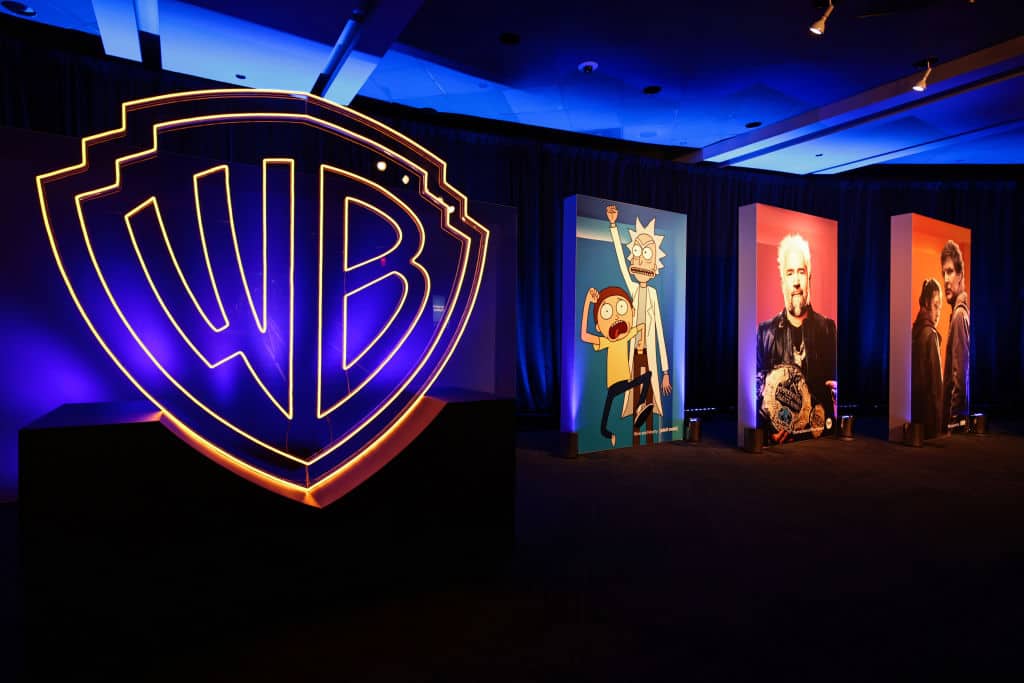Investing
Warner Brothers Discovery (WBD) Stock Price Prediction in 2030: Bull, Base & Bear Forecasts

Published:

A movie studio founded by four brothers–immigrants from Poland in the 1890s–was incorporated in 1923 as Warner Bros. Pictures Inc. That company lives on today as Warner Bros. Discovery Inc. (NASDAQ: WBD), a company created less than two years ago.

In June 2018, communications giant AT&T Inc. (NYSE: T) paid $84.5 billion in cash and stock to acquire media giant Time Warner Inc. The move was intended to move AT&T up the value chain to where margins were much better than in the internet plumbing business.
The marriage lasted nearly three years before AT&T spun off the renamed WarnerMedia division into its current incarnation as Warner Bros. Discovery. The spinoff was structured as a reverse Morris Trust in which the shareholders from AT&T ended up owning more than 70% of the company. The deal was finalized in April 2022 and left the new company with $2.5 billion in cash and $43.5 billion in debt as of last September. That is roughly the amount AT&T received in cash and the amount of new debt assumed by Warner Bros. Discovery.
Shares of Warner have dropped by more than 50% since the merger closed. The stock got a boost from “Barbie,” but most of that came before the movie was released. Barbie’s $1.4 billion worldwide gross through the first weekend of 2024 prompted investors to “sell the news.”
Here’s a look at how Warner has performed through the third quarter of 2023.

The company made news in December following a reported meeting between Warner CEO David Zaslav and Paramount Global (NASDAQ: PARA) CEO Bob Bakish to discuss merging the two media giants. Warner Bros. Discovery owns cable channels CNN, MAX, TNT, and TBS, among others. Paramount owns CBS, Comedy Central, and a host of top movie franchises.
Paramount is controlled by Shari Redstone, and a merger between the two may have a hard time coming to pass. Either Redstone could say no deal or potential financiers would balk at adding another $17 billion in debt to the surviving company. Entertainment is a big business, but $60 billion in debt is a huge pile of potential trouble. A deal may also run into regulatory issues.
A major issue facing every entertainment production and distribution company like Warner and Paramount is how people watch their products. Not only do the studios have to make shows that people want to watch, they are going to have to be where people want to watch the shows. Are people going to movie theaters, sitting in front of a big-screen TV, or watching on a handheld device? The answer is all of the above, but it’s the proportion that matters.

Our predicted prices for Warner stock in 2030 are $21 (base), $40 (bull), and $17.50 (bear). We’ll break down each of these scenarios in more detail below.

Since the Warner-Discovery merger, the combined company has paid down about $12 billion in the $55 billion debt the two companies had run up. Paying down debt and cutting costs are rewarded by both analysts and investors. Both may have been necessary to prepare the company for the future, but the slashing can’t go on forever.
Cable TV, long a cash cow for Discovery, is disappearing. Standing out in a streaming universe is both difficult and costly, but that may be where the company has to go to show that it can do more than cut costs.
Its revenue growth through 2027 is predicted to range from around 0.8% to 2.8% after a big jump in 2023 thanks to the merger. Adjusted earnings per share are expected to turn positive in 2024. The company’s enterprise value-to-EBIT ratio (EV/EBIT) for the next 12 months is a robust 59.5x, reflecting the size of the debt in relation to EPS. Warner-Discovery’s price-to-sales ratio at the end of the third quarter was 0.5x.
Analysts are not fired up about Warner’s prospects. If we assume sales rise by 3% annually from a forecast for 2023 of $41.49 billion, revenue could reach $51.03 billion in 2030. That implies a share price of around $21 a share. That’s our base case for Warner Bros. Discovery stock.

The problem facing the media and entertainment business generally is replacing falling–and predictable–cable TV revenues with rising–and less predictable–streaming revenue. Other, less obvious, challenges are TikTok-style short-form videos, along with AI-assisted video.
Investors’ best hope may be an acquisition by a company named Amazon or Apple, both of which could easily pay cash with a handsome premium for the shareholders. Even selling the studio portion of the business alone could haul in serious cash for shareholders.
The good news for Warner is cash flow. Free cash flow for the third quarter represented about 80% of operating cash flow. The company has been reducing its net debt by around $2 billion every quarter since the merger. Essentially 100% of free cash flow is being used to reduce debt.
Warner’s success depends on the fickleness of public demand. For Warner to succeed, management has to have its fingers on the pulse of consumers and lead, not follow. What are people going to want to see five years from now? How will they want to see it? The how is likely to be more important than the what.
In other words, we just can’t come up with any sort of analysis that is anything but a wild guess. Doubling Warner’s revenue growth rate from 3% to 6% yields total revenue of $62.4 billion in 2030 and a share price of around $40. That’s our bull case for Warner Bros. Discovery.

Shareholders have already voted with their feet when it comes to a tie-up with Paramount. Adding debt by betting that more of the same will succeed is not a winning strategy. In our view, acquiring Paramount Global would be a big mistake.
Other bad things that could happen:
If enough of these bad things happen, Warner could find its stock stuck at around $15 a share. As with the bull case, this is mostly just a wild guess and assumes that revenue grows by a measly 1% annually, and free cash flow dries up. Let’s put a 2030 bear-case price of $17.50 per share on the stock.
The average American spends $17,274 on debit cards a year, and it’s a HUGE mistake. First, debit cards don’t have the same fraud protections as credit cards. Once your money is gone, it’s gone. But more importantly you can actually get something back from this spending every time you swipe.
Issuers are handing out wild bonuses right now. With some you can earn up to 5% back on every purchase. That’s like getting a 5% discount on everything you buy!
Our top pick is kind of hard to imagine. Not only does it pay up to 5% back, it also includes a $200 cash back reward in the first six months, a 0% intro APR, and…. $0 annual fee. It’s quite literally free money for any one that uses a card regularly. Click here to learn more!
Flywheel Publishing has partnered with CardRatings to provide coverage of credit card products. Flywheel Publishing and CardRatings may receive a commission from card issuers.
Thank you for reading! Have some feedback for us?
Contact the 24/7 Wall St. editorial team.